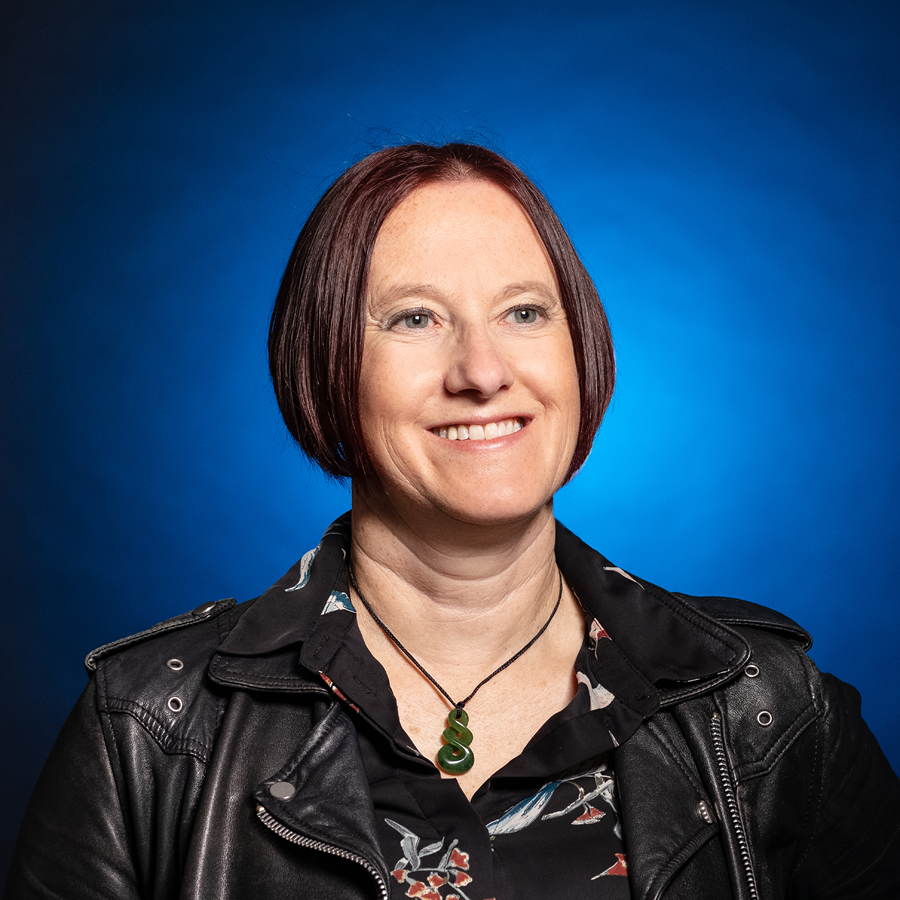Why do we need a compassionate campus?
And how do we get there?

For students and staff to thrive at university and beyond, we need a campus culture where everyone feels they belong. This is about how we teach as much as what we teach. Bridgette Bewick explores how her conversations with students and staff are helping the University of Leeds become a compassionate campus.
A university experience based on compassion and collaboration will give today’s students a fighting chance of solving tomorrow’s challenges, she argues – and help us all move to a more inclusive, diverse and equitable future.
Students arrive at university filled with optimism. For some, it offers an escape, for others, a continued path of excellence. All trust that university life will lead them to vibrant new opportunities and success.
But when the COVID-19 pandemic forced university students to study from home, it exposed the very different circumstances underlying individual hopes and experiences:
“At university there’s a perception of equality as long as we have access to the same facilities, and we’re all living in similar circumstances. Coronavirus has completely wiped that out. The level playing field has been removed. I don’t have access to some of the texts that my peers have, ‘cause they have money to access those things. This year I’ve been in a cramped family home, whereas I know a lot of people have been in big family homes! All these things have an impact on what you can produce. It’s made me really upset and angry.” Alexandra
How can we create a university culture that values and rewards multiple versions of success, one that respects and acknowledges the diversity of our lived experiences and privilege?
Compassionate Curriculum

My project, Compassionate Curriculum, set out to discover how to embed wellbeing into university teaching.
As a psychologist, I’ve a longstanding interest in advancing our understanding of student mental health and wellbeing. I want to understand how making changes to how we teach can improve the wellbeing of students.
I’m interested in how staff and students feel university culture helps or hinders their ability to be both authentic and successful.
What would it look like to create a campus culture founded on compassion and collaboration, rather than competition and ‘winning’?
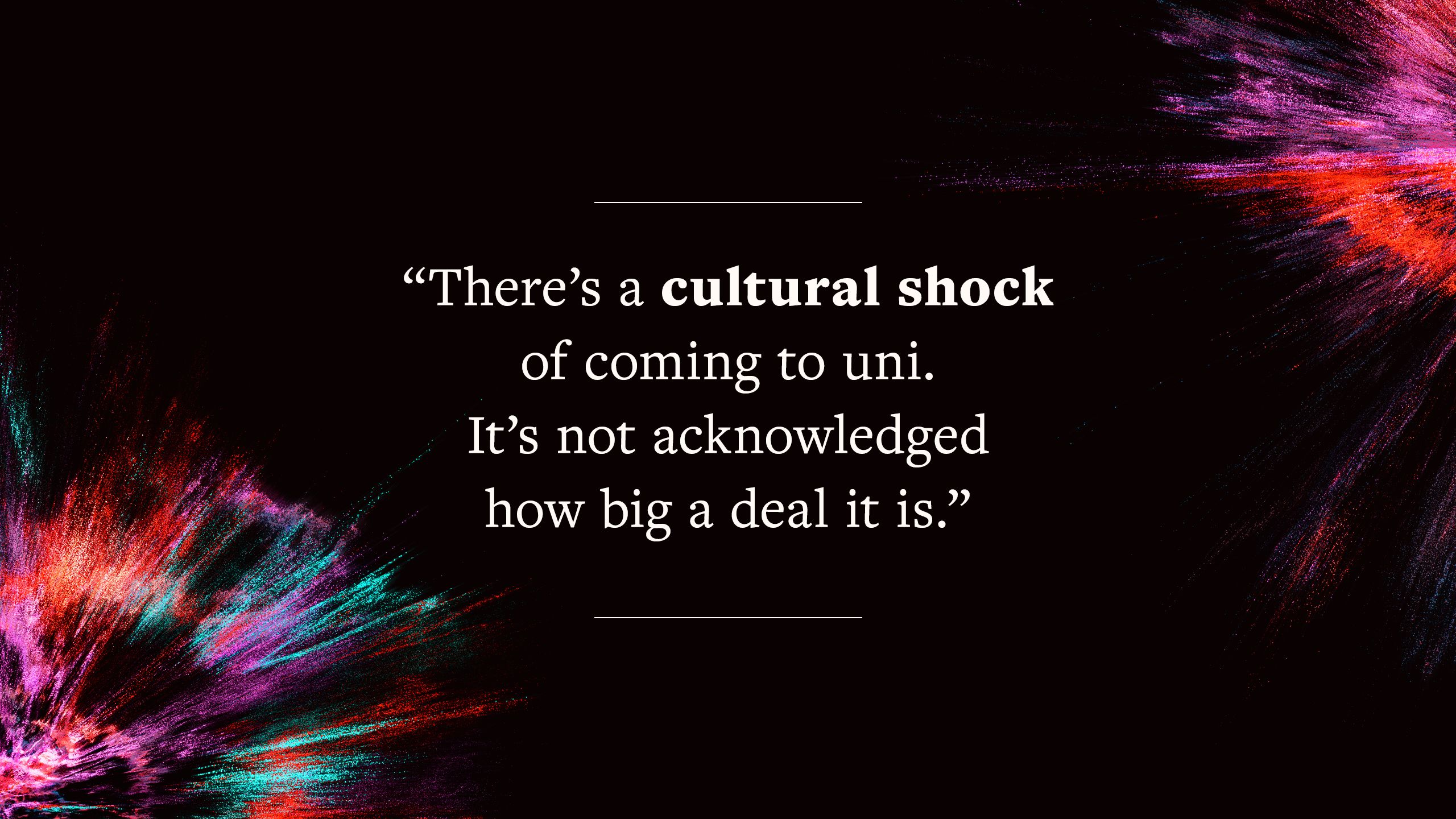
University promises so much. But students often feel poorly prepared for its actual challenges. They’re frustrated by the partial picture sold to them before they arrive. They feel the sector fails to be open about the whole student experience.
For many, the commercialisation of higher education means universities don’t provide a realistic impression of what it means to ‘be a student’. The very way universities are run, some believe, makes them ultimately unable meet their needs.
Elena, a student from a working-class background, described the shock of starting at uni.
“There’s a cultural shock of coming to uni. It’s not acknowledged much by uni how big of a deal it is. There’s a lot of things I can’t afford. I wish I could but that’s not the way things are. I've got to accept that, but it shouldn’t be the case. There are other people that get to do things just because of what they’re born into; they have access to different things and can do more things. I've been excluded.” Elena
I’m working in collaboration with students and staff, and their views are at the centre of the project.
Listening to their experiences means I can understand how university culture impacts on wellbeing; it helps me see where there are opportunities to do things better.
The enthusiasm students and staff have for the project has been overwhelming – they want to be involved and be part of making university a more positive and inclusive experience.
At Leeds we’re committed to students being partners in their education. Compassionate Curriculum holds monthly conversations.
We discuss questions such as:
- What might a compassionate curriculum look like in practice?
- How can we design, deliver, and assess learning in ways that help – and not hinder – wellbeing?
These conversations are an opportunity for people to come together and explore specific challenges. We might think about aspects of curriculum design, timetabling, integration with extracurricular activities, welcome and induction, personal tutoring, and our overall pedagogy.
Students and staff have also got involved in the project by completing online surveys and taking part in research interviews. Over 1,000 students and staff from across Leeds University have joined in so far.
The project’s recommendations will be grounded in their lived experiences, so that the University of Leeds can deliver better mental health, wellbeing, education, and employment prospects.
In part, this is about developing educational practices that support and foster wellbeing and a sense of belonging for those who study and work there. More than that, it’s about how a university itself is run.
In its new strategy for 2020–30, Leeds sets a blueprint for being a values-driven university. The ambition is to harness its expertise in research and education to help shape a better future for humanity, working through collaboration to tackle inequalities and drive change.
Universities could play an important role in making collaborative and co-operative ways of working the norm. Such inclusive universities have the power to shape a diverse and inclusive future where equitable outcomes for all may be possible.
I want to explore the implications for how universities do what they do.
How can we better facilitate a sense of belonging? I want to illuminate the benefits such sense of belonging brings for individuals and wider society.
My hope is that students who learn within a compassionate campus culture will take that learning forward with them, to realise a more diverse, kinder and fairer world.
The promise of university
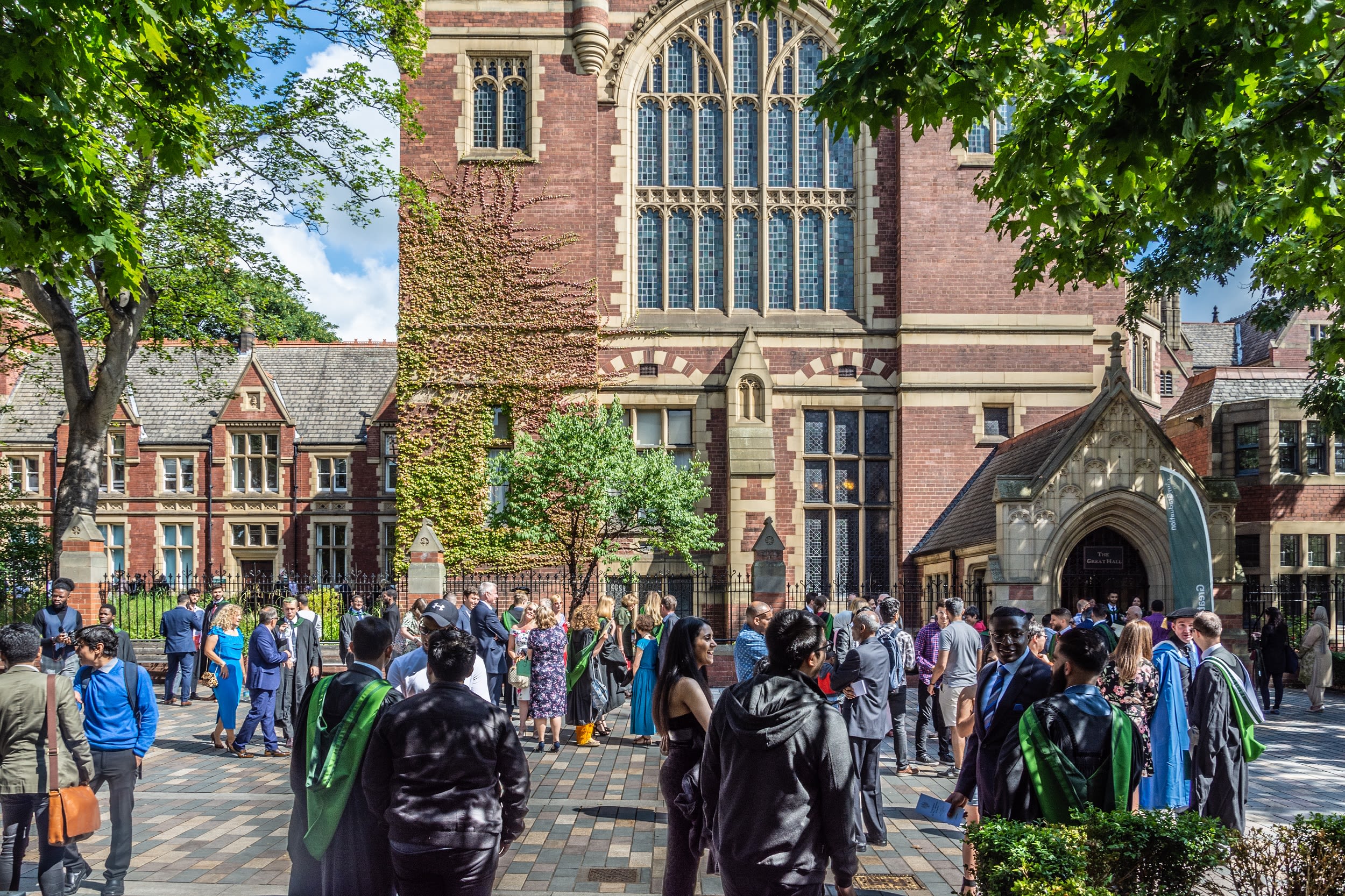
Students are excited by the promise of university as a time of exploration, of ideas, of possibilities, of self-discovery. For many, going to university offers an escape from their former self.
Students expect university to be a safe space to explore their sense of self and where they ‘fit’ in the world. They are full of a nervous excitement for the journey that lays ahead.
They speak of the joy of making “friends for life” and of “building memories for the future”.
Ciara described their feelings:
“I was so nervous but excited as well, if anything I was relieved … to be around new people and people who actually seemed like me.” Ciara
Students desire the ‘best ever’ student experience. But they also describe the burden of ensuring university lives up to being “the best time of my life”. They carry a weighty sense of responsibility to ‘create’ and ‘curate’ this experience.
Where does this expectation come from?
Welcome websites and open days portray the best a university has to offer. Marketing images illustrate that ‘best time’ story. Prospectuses showcase facilities that promise learning excellence, high quality extra-curricular activities, and an inclusive campus culture where everyone succeeds. Shiny brochures and student guides convey a perfect university experience in reach of everyone.
They depict university as designed to support every student in ‘making the most’ of their time and minimising ‘wasted’ or ‘lost’ opportunities.
Students’ expectations build. They will have an experience that will bring high academic achievement, meaningful friendships, independence, and a bumper CV packed with extra-curricular achievements.
It’s the process of doing the work that helps you grow and become the best version of yourself.
Those with the necessary cultural capital intuitively learn how to play this game. They understand what ‘points’ they need to collect along the way.
Melissa described their plan for their next year at uni:
“I’m super excited to have my degree, but I’m aiming for a good degree with lots of other things too. I don’t want to just graduate and have my degree and haven’t done anything for three years. I’m trying to be a very rounded, very employable person by the end of it. I’m constantly worrying about my employability. I’m in the stages of reapplying for all my volunteering and trying to get placements. It’s very stressful. I’m on quite a high: I’ve got two projects and four jobs going really, really well. I just need to continue the momentum for next year. I’ll be really devastated if I don’t get anything for next year.” Melissa
Others aren’t even aware that a game is being played. These students risk ending up with a score card that doesn’t reflect how much they’ve crammed into their university years. When reality doesn’t live up to expectations, it brings disappointment and also a sense of personal failure.
“It’s not as I expected. I thought being a uni student I would suddenly be very social. That’s so weird, because how can I just change like that? I put too much pressure on myself, it shouldn’t be like – I don’t think there’s a specific way in which your university experience should be, but I still feel that I’m not doing it right if it’s not the same as other people’s experiences. I feel like a failure ‘cause uni is supposed to be a very social place. I haven’t been the typical student, partying and everything. I wouldn’t enjoy it. It makes me feel like an outsider. That’s just how society has been constructed.” Jade
Students acknowledge that universities attempt to adjust for individual circumstance. But they also see archaic processes that can’t respond quickly when circumstances change.
For some, ‘inclusive practices’ which require them to justify why they are ‘worthy’ of ‘special treatment’ are further evidence that they really don’t belong at university.
The COVID-19 pandemic laid bare the inequities of university systems.
Alexandra described what had happened to them:
“I was using my sister’s desk and I was using the kitchen table. I was just being shuffled around everywhere. Sometimes I’d have to use my bed. It wasn’t sustainable. A desk, people assume everyone has one and it’s sort of like a pre-requisite for being an online learner and an online communicator. It puts you on the same group as the people you are communicating with. It was quite embarrassing because I had to tell them I didn’t have a desk, they didn’t ask.” Alexandra
So the onus is on the student to ask for adjustments. But other students might then see this as ‘cheating’ the system: after all, surely if the system was unfair, it would be changed?
The desire to ‘treat everyone the same’ can leave marginalised students feeling disenfranchised and disadvantaged. They are left with the assumption that university is not designed for ‘people like them’.
The systems they value are those that understand how responding to inequality doesn’t inherently advantage one group over another, rather it levels the playing field.
They would like to live and study within a culture that facilitates space to explore and experience authentically without fear of ‘messing up’ and ‘missing out’.
Students are realistic about universities’ ability to demolish all inequality at speed. But, rightly, they want universities to do more – and to get their own house in order.
“Unis need to change, they just can’t stay this way. People don’t feel represented. I feel disappointed. I didn’t realise it was like this.” Elena
What does a compassionate campus look like?
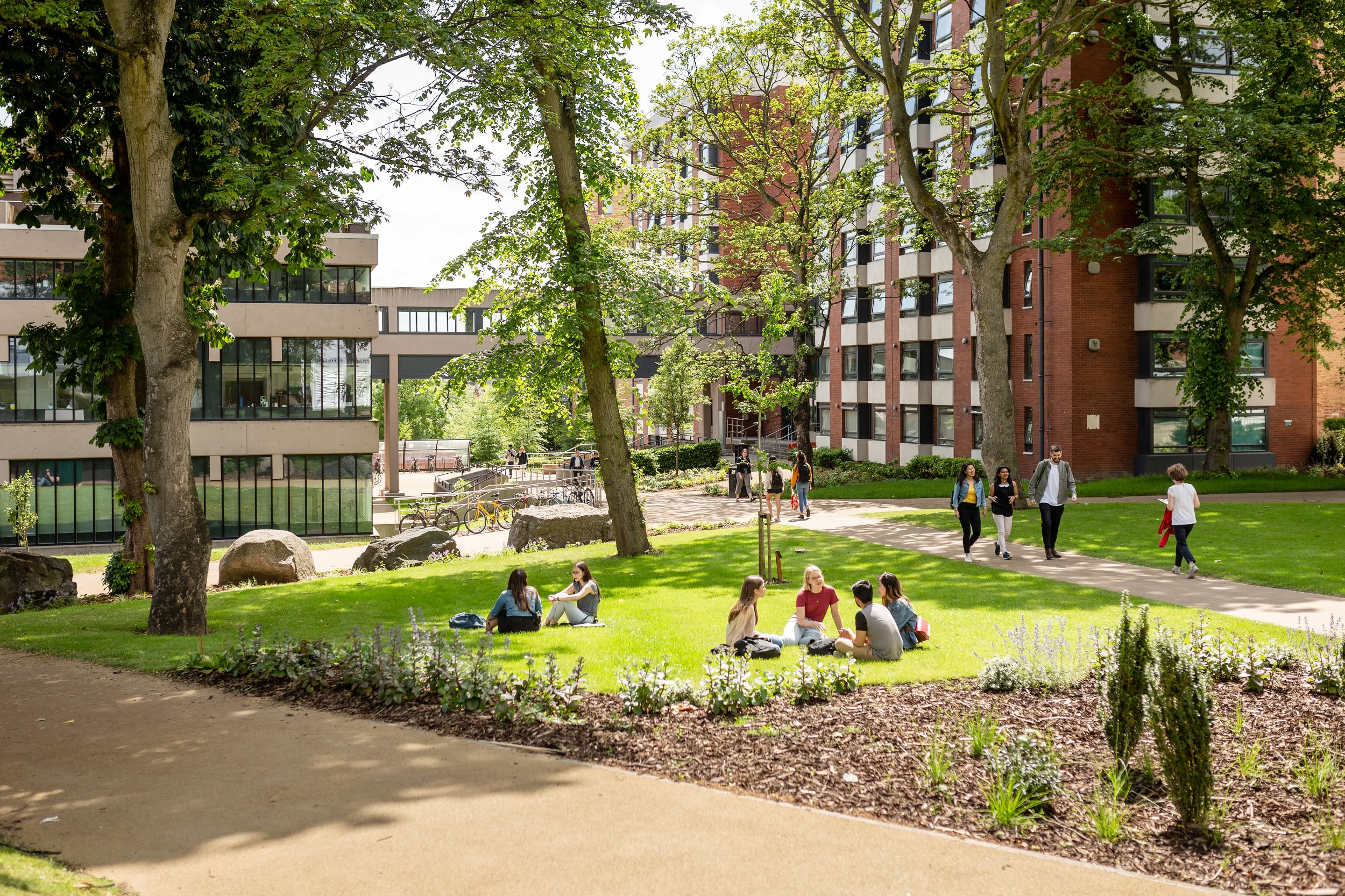
Right now, it might be difficult to visualise what a compassionate campus culture would look like.
Changing campus culture to one of compassion, inclusion, and equity requires thinking about what society desires and needs from future graduates.
We’re not starting from scratch; we have a wealth of experience. Here at Leeds, action is already supporting students to develop a sense of belonging and confidence in their ability to make a difference.
There are exciting initiatives underway, creating change for both the individual and the institution. There are projects on induction, learning analytics, inclusive education, and decolonising the curriculum.
The response to the Compassionate Curriculum project has been overwhelmingly positive. The project officially started in November 2019, when the Faculty of Biological Sciences launched the student wellbeing survey. The Schools of Law, Music, Design, Language Culture and Societies, and Medicine soon followed. The project now has representation from all Faculties across the University.
The speed at which Faculties have come aboard shows their commitment to improving wellbeing through curriculum development.
The University is committed to ensuring wellbeing is at the heart of both the student experience and the curriculum. Preliminary findings from the project are feeding into the work of the University of Leeds Student Success team.
The Compassionate Curriculum project is playing an important role in developing and delivering the University’s Student Education and the Access and Student Success strategies.
It’s been an invaluable experience for me. I feel I have made some impact on other people’s lives.
But we must look deeper – not only at what we teach, but also at how we support learning. Recalibrating overloaded timetables, for example, gives students opportunities to connect with the wider community.
Students see these activities as just as important as the taught curriculum. As Ethan explained:
“This year I’ve been part of a music volunteering society. We go to schools or retirement homes or things like that and do musical activity with people. I’ve really enjoyed it. It’s been an invaluable experience for me. A lot of uni is all career or business based. This links to music therapy and possible things that I want to do in the future. To be involved in the community here and to reach out and know what sort of things are happening here in Leeds; it’s been a lot of fun. I feel I have made some impact on other people’s lives.” Ethan
Students also want more honest and authentic communication. Creating safe spaces where inequalities can be discussed openly and called out for what they are enables individuals to recognise that they aren’t alone, but part of a marginalised collective.
Elena was pleased to discover a social mobility society.
“There’s a social mobility society that’s been set up. It was really reassuring. So many people in the same position as me, from a working-class background or who don’t have as much social capital. Things I struggled with at uni that I thought was just me but it’s not.” Elena
As university staff, we can also model better behaviour. We often tell students how taking time out is important if we are to achieve a work-life balance and study effectively. But are we inadvertently setting an expectation that everyone is on their emails all the time and that things need to be responded to 24/7?
A campus culture that accepts that late-night and weekend working is ‘just how it is’ works against the creation of a more compassionate campus. Systemic changes are needed that enable and reward compassionate ways working.
As universities, we need to think holistically about what we are presenting to students.
Giving students choice is positive. But we must also arm them with the information they need to make decisions about how they want to structure and manage their university experience.
We need to ensure people are thinking about how their actions are impacting their wellbeing and mental health; and provide space to enable them to act differently. For example, a crammed lecture and assessment timetable provides little space for students – or staff – to explore extra-curricular opportunities. Nor does it allow breathing space when things get tough.
Why does a compassionate campus matter?
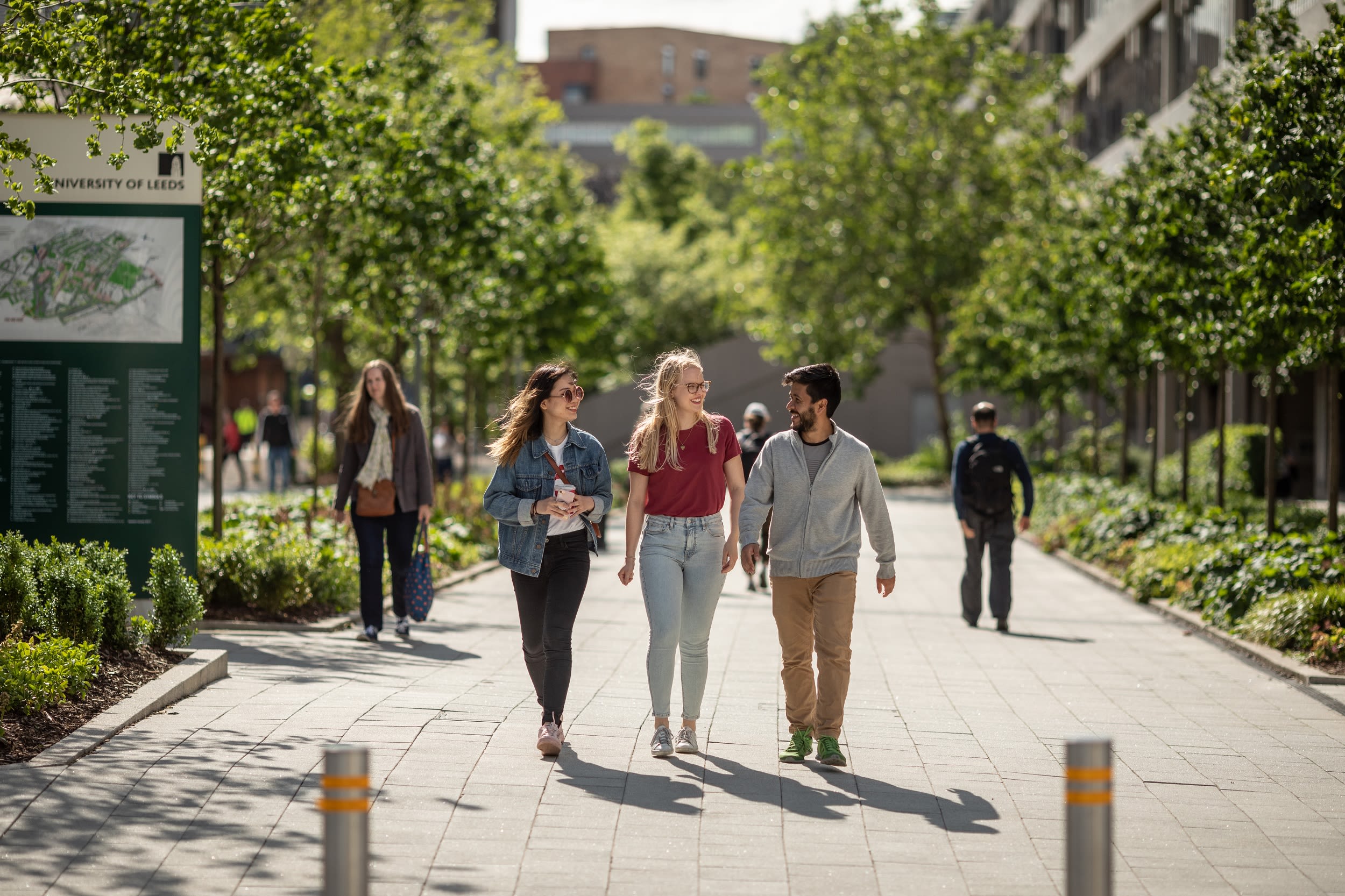
Does it matter if students don’t feel confident about taking academic risks and exploring alternative ways of thinking and doing? Very much so.
As Elena explains:
“If someone can’t do something because of restraints in terms of access or money or disability, that could’ve turned out to be something they love or could be really good at. It matters because we could be learning more things about ourselves that could determine what career route we go down.” Elena
But it goes much further than the impact for individuals. Students are seeking meaningful experiences. That’s not just because of the results such endeavours might yield, but also because of the opportunity for growth and exploration they provide.
What would it look like if we let go of the premise that more is intrinsically better and instead focused on creating meaningful experiences and connections?
What would it mean to enable students and staff to slow down and find space for learning and innovation through failure?
A higher education system that devalues community leadership and collective action is unlikely to develop graduates equipped to harness the power of interdisciplinary collaboration.
What might that mean for society’s preparedness for finding solutions to current and future global problems?
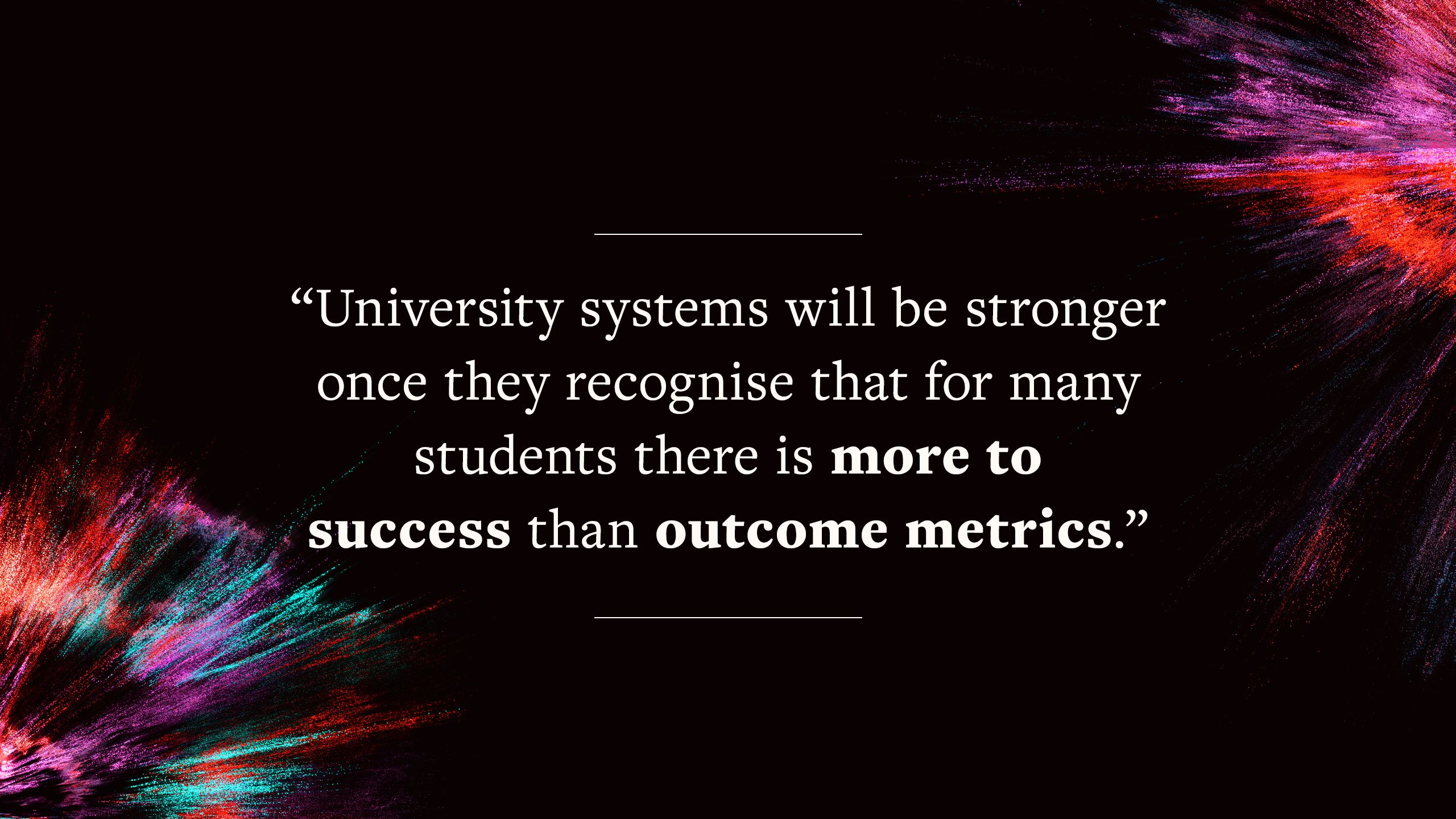
How can we create a more cooperative way of learning, such that students no longer feel that ‘winning’ is the only measure of success?
The COVID-19 pandemic has given us the chance to re-evaluate what is important to society. Universities are beginning to seriously consider the role of compassion and collaboration in meeting their civic responsibilities.
Creating a compassionate campus culture will give today’s students a fighting chance of solving tomorrow’s challenges, while simultaneously supporting the development of a more inclusive, diverse and equitable future – a future where those previously marginalised are seen, valued, respected and belong.
If we direct attention and resources to transforming systems and developing practices that provide space for valuing a multiplicity of experience, and if we recognise, value and respect diversity, then creating a compassionate campus culture can be the catalyst for more inclusive and equitable societies.
Quotations are taken from research interviews. All names have been changed.
